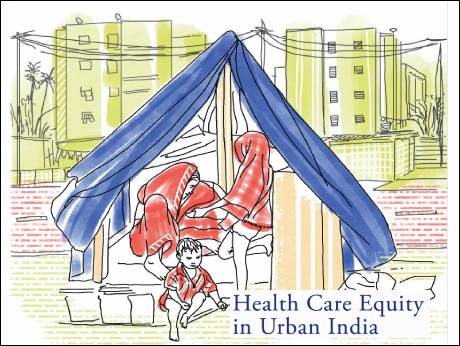
Bangalore, November 21, 2021: A third of India's people now live in urban areas. India's urban population has seen rapid growth from about 18% (1960), 28.53% (2001), to 34% in 2019. Close to 30% of people living in urban areas are poor. COVID-19 has called for a big fix of our healthcare systems, but how much of this trickles down to the most vulnerable communities in our cities?
The Azim Premji University, in collaboration with 17 regional NGOs across India, has launched the 'Health Care Equity in Urban India' Report, a compendium of learnings that unpack health vulnerabilities and inequalities in cities in India.
The report explores understanding of health vulnerabilities of urban poor, availability, accessibility and cost of healthcare facilities and possibilities in future-proofing services in the next decade. It draws insight from data collected through detailed interactions with civil society organisations in cities and towns across Mumbai, Bangalore, Surat, Lucknow, Guwahati, Ranchi, and Delhi. This also included analysis of National Family and Health Surveys (NHFS), Census of India and inputs from state-level health officials on the provision of health care.
Key findings
Apart from a call for significant investment in scaling healthcare facilities and infrastructure in cities, the report finds that there are critical factors that disrupt quality healthcare services to the poor. These are:
Working to address health care needs and setting clear pathways that target the urban poor can transition our services for the most vulnerable in the next decade. The report calls for:
As urbanisation is happening rapidly, the number of the urban poor is only expected to increase. A well-functioning, better coordinated and governed health care system is crucial at this point. The pandemic has brought to attention the need for a robust and resourced healthcare system. Addressing this now will benefit the most vulnerable and offer critical services to city dwellers across income groups.
"Urban health care has received relatively less research and policy attention. This report is an important contribution that enhances our understanding of the health vulnerabilities of the urban poor, unpacks the health system governance challenges in different cities and towns and provides a road map for how to reimagine our urban health systems. The report demonstrates why it is important to prioritise urban health and act now!" said Arima Mishra, Professor, Azim Premji University.
Find full report here: UHC report 1.5.indd (azimpremjifoundation.org)